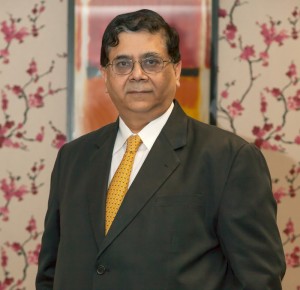By Rahul Prakash, Asian-mena Counsel
Cyril Amarchand Mangaldas (CAM) has launched India’s first legal technology incubator, aptly named Prarambh or “Start” in Hindi/Sanskrit. With Prarambh, CAM aims to fill the gap between what’s on offer internationally by legal tech companies and what is actually suited to the Indian legal market.
Currently, several legal tech companies are bubbling under the radar in the Indian startup space. Prarambh looks to provide a collaborative space for a select few of them, where they can benefit not only from CAM’s vast reach and experience, but also from their clients who will be involved.
Asian-mena Counsel spoke to CAM’s managing partner, Cyril Shroff, about Prarambh.
Tell us a bit more about Prarambh.
Prarambh is India’s first legal tech incubator by a law firm which will be housed at CAM. The selected startups will be provided mentorship from experts with diverse backgrounds, counselling and guidance by the Prarambh team. They will be provided access to the knowledge, resources and experience of some of the best legal minds in the country. Prarambh will also seek to guide them towards fruition of their idea by providing a suitable platform to showcase their business to potential clients and investors. The selected innovator companies will be provided dedicated work space and associated office facilities. Additionally, we will help them in beta testing of their developed products.
What were some driving factors that led to Prarambh?
During our initial exploration, we found that a great deal of legal technology being used in other jurisdictions is not fully suited to the Indian legal market. This means there is both a “need gap” and an “adjustment gap” that we are seeking to fill. CAM also believes that there is a deep pool of undiscovered and under-supported legal and technology skills in India that can be fostered to fill this gap. Prarambh has all the ingredients to radically transform the legal-tech landscape impacting both transactions and dispute resolution. CAM is setting the ball rolling for the emergence of India as an important player in this legal technology domain.
Are there any specific legal technologies that Prarambh will be looking to foster? Any particular names?
Prarambh is open to technology-based solutions for the legal industry. This will include but is not limited to areas related to access to justice, dispute resolution, transaction efficiencies, law firm operations, legal research, compliance, contract management, managing legal talent.
We will be inviting applications from April 8 to April 30. The applications will then be shortlisted followed by an interview and pitching round. The selected startups will be announced in the first week of July.
Are your in-house counsel clients involved in any way with the processes at Prarambh to vet or provide insights to legal tech collaborators?
Our clients are at the core of everything that we do, and our innovation efforts are designed to ensure that we’re providing the very best legal advice and service to them in the most impactful ways. We have developed Prarambh with an open mindset as to who is involved and how. We want to encourage an ecosystem of stakeholders, with clients being an important part of this. We hope to bring our clients into Prarambh at various stages as and when those in the incubator can value from their advice, guidance and involvement.
What are Prarambh’s plans for the near future?
The initial period for the first cohort will be six months. If we find a promising product that may require an extension, we surely will extend the term. At the end of six months, we’d like to see the right products with confident developers exploring opportunities to scale and achieve commercial success. We also think that the legal tech market will begin to start evolving and their supporters will increase, thereby encouraging a rise in the developers of legal tech. This will then lead to Prarambh’s second cohort!
The Indian legal tech space is a very interesting area to watch in the coming years, as it has the potential to change the legal industry, which is drastically in need of tech-enabled improvement. But also to see if that means fewer work for young lawyers, hundreds of thousands of who graduate each year from India’s 900+ law schools.


















